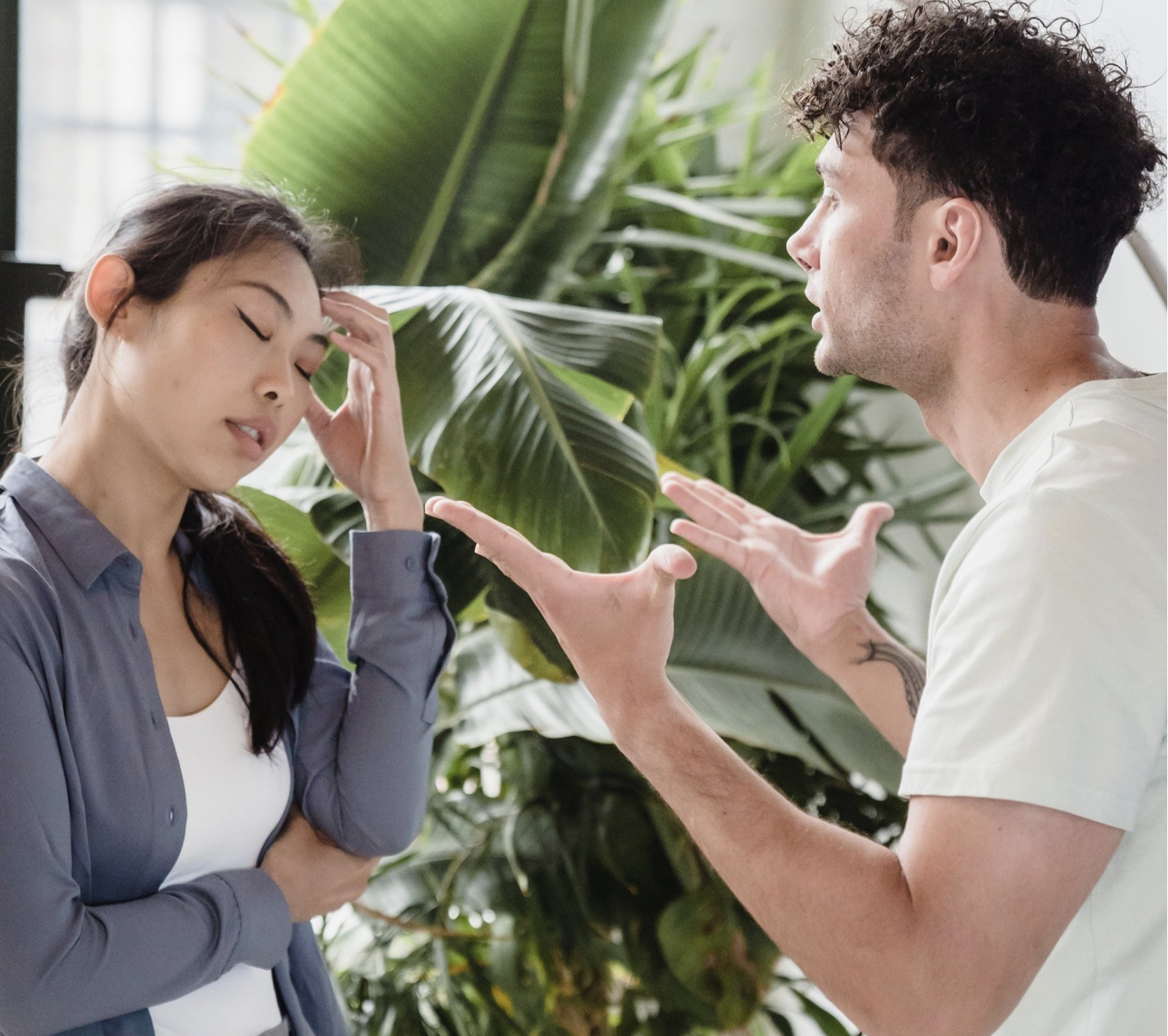
Blog
How to Find Dates At Every Age (20s - 60+!)
Dating at any age comes with its challenges. For people in their twenties, finding dates with similar life goals can be difficult. For folks in their sixties, it may seem like there are few age-appropriate matches to begin with. Meanwhile, people of all ages may struggle to find dates with people who share the same values.
So, how can you find dates that are worth the time and effort? Here’s an in-depth guide.
Why Do Couples Break Up At Three, Seven, or 11 Years?
The longer you spend with your partner, the less likely you are to break up. According to one longitudinal study, there’s a 10% drop in the likelihood of a breakup for every year you’re together beyond the 5-year point. Married couples have an even lower likelihood of splitting. That makes sense since the longer you’re with someone, the more challenges you face and overcome together, creating a stronger bond.
So, why do we see a consistent pattern of couples breaking up at the three, seven, and 11-year markers? With all that time invested to overcome hurdles, why end things? While every relationship is different, there are some common themes we can point out.
The Heart, Mind, and Gut: Which Should You Listen To?
You’ve likely heard phrases like “go with your gut” and “think with your heart.” While these may seem like simple expressions, there’s actually some truth to them. Neuroscience now shows us that we have three “brains” - the mind, heart, and gut. To put it simply, each of these areas has neurotransmitters, sensory neurons, motor neurons, and ganglia. They absorb, process, store, and access information - just like a brain.
So, when you feel pulled in multiple directions by each of these areas, it’s for good reason. Here’s what the heart, mind, and gut can tell you, as well as which you should listen to.
Are You Parenting Your Partner? How to Create Healthy Roles in Your Relationship
As you grow up, it’s fairly common to fantasize and imagine what your first time having sex will be like. But what happens after that first sexual experience? Sex requires exploration and practice to figure out what you actually like or don’t like. Yet we don’t often discuss this process.
The Best Way to Find Out What You’re Into In Bed
As you grow up, it’s fairly common to fantasize and imagine what your first time having sex will be like. But what happens after that first sexual experience? Sex requires exploration and practice to figure out what you actually like or don’t like. Yet we don’t often discuss this process.
If you aren’t sure what exactly turns you on, you’re not alone. Many people never give themselves the chance to investigate this topic. Perhaps you’ve had just one partner - or maybe, you tend to stick to the same routine because it’s familiar. Either way, it’s never too late to start exploring.
5 Brain Hacks to Stay Motivated
Have you ever set a New Year’s resolution, only to find yourself failing less than a month in? Or, perhaps you’ve decided you’re finally going to start that side hustle, but then you struggle to get off the couch and take action. Whatever the case may be, we’ve all been there. Motivation - the drive to reach your goals - is so critical for action, yet it’s also fleeting. Here’s how to stay motivated - or, at the very least, get the work done even when you don't feel like it.
Are You In Love or Attached? Four Ways to Tell the Difference
The heightened emotions you experience when you enter a relationship with another person can be overwhelming. You likely feel like you have undeniable chemistry - that you’re head over heels in love. However, when you take a closer look at your thoughts and feelings, you might find that you’re not actually in love - you’re strongly attached. So, how can you tell the difference between attachment and love? Shouldn’t you be attached to the person you're in love with? Let’s discuss.
How Anxiety Mimics Arousal & What You Can Do To Better Understand Yourself
Anxiety is a key human emotion - it’s what helps us prevent and avoid getting into hazardous situations. You might think that anxiety and arousal are completely separate - one is an emotion that warns us of impending danger, the other is a physiological and psychological state that tells us that it’s time to have sex. For some people, anxious feelings can impair sexual arousal and turn them off. For others, feeling anxious can actually mimic the feeling of arousal. In the latter case, it can feel concerning and confusing. Understanding your deeper underlying emotions can help you either accept your sexuality for what it is, or learn to break the cycle if need be.
How Anxiety Causes Erectile Dysfunction And 7 Strategies to Overcome It
Experiencing erectile dysfunction can certainly feel lonely and shameful - like you’re the only person with this problem. If you’re in this camp, you might be surprised to find out that erectile dysfunction (ED) is actually incredibly common. In fact, ED affects around 18 million American men ages 20 and up. That number may be even higher, as it’s likely that cases of ED are under-reported.
Are You Having Spontaneous or Responsive Sex? Here’s How It’s Impacting Your Relationship
Most of us are taught that the desire to have sex is intrinsic - that we all just have a naturally low or high libido. A mismatch in sexual desire levels is also a prime reason that couples enter sex therapy. When one person feels like they must always initiate sex and the other never thinks about sex, it can create problematic ripples across the entire relationship. One person might feel undesired while the other feels broken, like something is wrong with them.
Did I Just Discover That I’m An Introvert - Or Did Covid Make Me This Way?
There’s no doubt that Covid changed many things about the way we operate and the world we live in. One of the most notable changes lies within the way we socialize with others. After months and years in isolation, did the pandemic force us into becoming introverts? Or were we always this way - and Covid just gave us time to realize it? This article will explore the ways that the pandemic changed the way we socialize, as well as how introversion and mental health issues come into play.
Nine Effective Communication Strategies for Couples in Conflict
Every relationship inevitably encounters conflict at one point or another. Whether it’s over something big or small, being able to communicate with your partner is key to overcoming these issues and moving forward. However, your differing personal backgrounds might hold you back from speaking effectively with each other. Here are some simple tools that can help you communicate successfully.
How to Resume Sex After an Affair
There is no right or wrong way to respond sexually after an affair. For some, sex may become non-existent as you work through the emotions and revelations following infidelity. For others, sex may ramp up and even seem “better” after the affair. Thinking of resuming sex after an affair might make you feel intense longing or intense dread - or a mix of the two. In either case, it’s incredibly important that you and your partner work through the emotions and trauma following an affair in order to rebuild your connection, intimacy as a couple, and sexual wholeness on an individual level.
Six Ways to Eliminate Negative Intrusive Thoughts That Cause Anxiety and Depression
There’s truth to the old saying “We’re our own worst critic.” We all deal with negative thoughts about ourselves, which can be helpful in keeping us motivated and on track to reach goals. However, when these thoughts become intrusive, constant, and excessively negative, it can lead to anxiety and depression. These intrusive thoughts and negative thought patterns can be hard to break, but doing so is key to healing and feeling better.
Dissociation: Five Grounding Techniques to Bring You Back Into the Present
Your body and brain are constantly fighting to keep you safe. Unfortunately, sometimes the tactics they use aren’t the best for long-term mental health. This is especially true for dissociation.
How to Move On From the Hurt of a Past Relationship
Relationships are a vital part of life, but the end of a relationship can also cause more emotional hurt than we’re ready to deal with. In fact, the pain of a breakup is no joke - research shows that we feel emotional wounds in very similar ways that we feel physical wounds, sometimes even in the same part of the brain.
Has Covid Affected Your Sex Life? Three Tips to Improve Sex Drive
If you feel like your sex life has changed since the pandemic, you’re not alone. In fact, A Kinsey Institute study found that 24% of married folks are having less sex than they were before Covid.

















